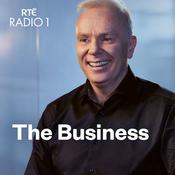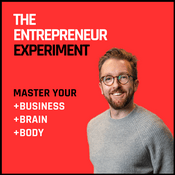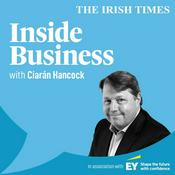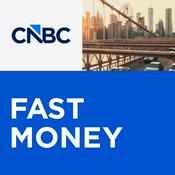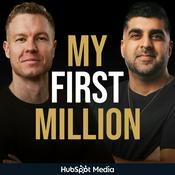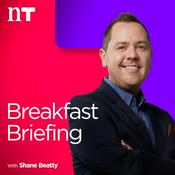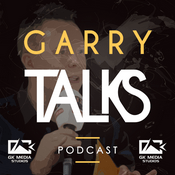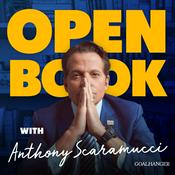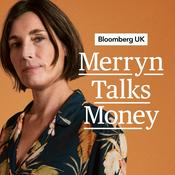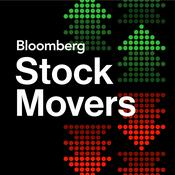22 episodes
- About the Episode
Corporate innovation pioneer and former Citi Chief Innovation Officer Amy Radin joins host Elijah Eilert to explain how large, regulated organisations can move quickly without losing control. Amy shares how to turn likely vetoes into informed sponsorship. The conversation covers why disciplined, low-cost experiments generate decision-ready evidence, how strategic advocacy helps innovators win allies, and why partnering with finance and risk teams can convert uncertainty into competitive advantage. Amy also predicts that modular, interdisciplinary certificates will soon displace traditional MBAs as the preferred path for innovation leaders. From growing up in a small family business to navigating corporate boardrooms, Amy shares both the lessons she has learned and unlearn, insights every innovation leader can put to work today.
The Change Maker’s Playbook
Topics & Insights
[00:20] Introducing Amy Radin: One of the first corporate Chief Innovation Officers in the world, dedicated to solving real customer problems.
[01:03] Defining innovation: New and viable solutions that meet unmet rational and emotional needs within legal, ethical and commercial limits.
[02:35] The innovation spectrum: “New” is relative to your company or market; incremental changes can be transformative internally.
[03:53] Metric pitfalls: Mature-business ROI hurdles choke exploration, focus first on learning milestones and evidence.
[05:24] Listen before you survey: Qualitative observation often outperforms data sets when desirability is uncertain.
[06:43] Empathy for CFOs: Understand that finance leaders are paid to protect cash flow and manage certainty. Apply the same discovery techniques you use with customers to CFOs: frame proposals as stage-gated micro-bets with clear spending caps, predefined kill criteria and measurable learning goals. Translating risk into the language of liquidity, runway and downside protection builds their confidence to fund experimentation.
[09:31] Budgeting experiments: Treat rapid tests as investments that generate decision-grade data.
[13:50] The corporate tax: In a big organisation, persuading decision-makers and influencers is not a side task, it is a huge part of the job. Innovators must decide whether they are willing to invest that time and energy to win sponsorship and move ideas forward.
[16:48] Strategic advocacy: Treat innovation like a social movement. Systematically map champions, fence-sitters and blockers; tailor value propositions and small “next step” asks for each group and build a visible coalition that tips policy, budget and culture from maybe to yes.
[22:25] Risk Review Committee: While piloting peer-to-peer mobile payments at Citi, Amy assembled a cross-functional forum brand, legal, compliance, cyber-security and enterprise-risk, before any contracts were drafted. By surfacing objectives early, walking through “what-if” scenarios and co-designing safeguards (smallest viable test, rapid-exit plan, advance regulator briefings), the team cut approval time, tightened controls and converted risk leaders from potential blockers into active sponsors.
[26:14] Innovation as risk management: In fast-moving markets, clinging to the status quo can expose the business to greater... EP 21 - Too much Hype, too little Impact: How to Avoid the AI Failures of Others
19/2/2025 | 56 mins.EP 21 - Too much Hype, too little Impact: How to Avoid the AI Failures of Others
About the Episode
AI adoption is skyrocketing, but most AI projects don’t deliver on their promises. In this episode, Dr. Evan Shellshear, Managing Director and Group CEO of Ubidy, breaks down why 80% of AI projects fail and what organisations can do to improve their chances of success.
Drawing insights from his book Why Data Science Projects Fail, Evan explores the biggest blockers to AI success, the importance of strategic alignment, and how companies can avoid wasting millions on AI initiatives that don’t deliver business impact.
Whether you are an AI practitioner, business leader, or innovation manager, this episode will help you separate AI hype from reality and make smarter technology investment decisions.
Evan's Books
Why Data Science Projects Fail: The Harsh Realities of Implementing AI and Analytics, without the Hype:
https://www.amazon.com.au/Why-Data-Science-Projects-Fail/dp/103266133X?ref_=ast_author_dp
Innovation Tools: The most successful techniques to innovate cheaply and effectively:
https://www.amazon.com.au/Innovation-Tools-Successful-Techniques-Effectively/dp/0646956469?ref_=ast_author_dp
Topics and Insights
[02:53] – Defining Innovation
Evan shares his perspective on what defines innovation, emphasising that it is not just about new ideas but the impact they create. He draws a clear distinction between invention and innovation, explaining why an idea without impact remains an invention rather than a true innovation.
[04:27] – Measuring Innovation Effectively
Innovation measurement starts with two key questions: Is it new? and What is its impact? Evan highlights the difficulty of measuring “newness” and discusses why impact should be measured based on purpose-driven innovation. He argues that metrics should align with a company’s innovation goals, whether it is patent creation, revenue growth, or industry transformation.
[06:11] – The Biggest Blockers to Innovation in Large Organizations
Evan contrasts the flexibility of small, nimble companies with the structural challenges of large enterprises. He explains how legacy systems, bureaucratic processes, and internal competition create significant barriers to innovation, making it difficult for new ideas to gain traction and survive within large corporations.
[07:31] – Why AI Projects Fail: The 80% Failure Rate
Evan breaks down the staggering failure rate of AI projects, estimating that up to 80% fail, with the number exceeding 90% for analytically immature organizations. He highlights the three biggest reasons AI initiatives go wrong:
Lack of strategic alignment – Organizations chase AI trends without clear business objectives.
Poor data quality and availability – Without the right data, even the best AI models fail.
Lack of experienced resources – Many AI teams lack deep expertise, leading to unrealistic expectations and weak execution.
[12:50] – The Outback AI Story: When AI Doesn’t Make Business Sense
Evan shares a fictitious story from Australia’s Outback, where a farmer was pitched an AI-driven solution for managing crops. While the...Finding Product/Market Fit After Launch: What to Do When You're Already on the Market?
06/11/2024 | 1h 2 mins.About the Episode
In this episode, Elijah Eilert sits down with Étienne Garbugli. Étienne, the CEO of Sliced, veteran founder, and author of several books, shares his insights.
The conversation centers around Étienne’s most recent book, Find Your Market. The book explores how to effectively find Product/Market Fit when innovations are already built or at least partially developed without having factored in the market need properly. Most innovators understand the need for research and experimentation before committing significant resources to but in reality, many organisations, Research and Development departments, and especially universities all too often do not adhere to it.
Topics and Insights
[01:00] Question 1: What is Innovation?
Étienne kicks off by reframing how we should think about innovation—not just products, but improvements in services, processes, and distribution. He makes a strong case for continuous iteration as the key to staying relevant in today’s hyper-competitive landscape.
[02:30] – Question 2: How Should Innovation Be Measured?
Étienne discusses different approaches to measuring innovation, from immediate goals (Horizon 1) to long-term, high-uncertainty efforts. He shares his perspective on why understanding progress in increments is key, especially when navigating high-risk innovation projects.
[05:00] – Question 3: What is the Biggest Barrier to Innovation?
Elijah and Étienne explore a major, yet often overlooked, barrier to innovation—career progression. In organisations, those who get promoted are often seen as people who make the “right” decisions. This clashes with the exploratory and uncertain nature of genuine innovation, which frequently involves taking risks and failing.
[12:30] – Finding Your Market
A significant portion of the conversation focuses on Étienne’s book, Find Your Market: Discover and Win Your Product’s Best Market Opportunity. He walks listeners through his bottom-up approach to identifying markets—starting from precise, actionable customer segments and expanding outward—contrasted against traditional top-down TAM analysis. Elijah and Étienne jokingly refer to it as “Lean Startup, but backwards,” emphasising how companies with an existing product can work backward to find Product/Market-Fit but in a lean way.
[18:00] – Innovation Metrics and Strategy Alignment
They discuss how to align innovation metrics with broader business strategy. Measuring learning outcomes and value creation through insights—rather than just focusing on short-term financial gains. Étienne also shares how even seasoned entrepreneurs often realise their understanding of markets evolves significantly over time.
[36:30] – Segmenting Effectively with Slice
Étienne explains how his company, Sliced helps companies break down broader target audiences into smaller, more actionable segments. This process enables companies to better understand where their true market opportunities...- About the Episode
Elijah Eilert is talking to Peter LePiane about innovation within large organizations. Part 2 of the podcast explores various aspects of innovation related decision-making. Peter opens up about his background in science and computer science, his Startup journey and how he nearly founded Airbnb and Shopify. He introduces Estimatic, his latest venture, software designed to model uncertain projects and ideas.
The episode addresses the concept of innovation accounting, common misconceptions in business case analysis, and the value of information by connecting learning to financial outcomes. The episode challenges traditional practices in organizations and focuses on the importance of understanding human behaviour to achieve success for new products and organisational change management.
Throughout this episode, the duo explores a myriad of topics central to innovation-related decision-making and highlights the value of information, connecting it to financial outcomes. Unravelling the concept of innovation accounting, Peter debunks the common misconceptions prevalent in business case analysis. The episode challenges traditional practices and underscores the pivotal role of comprehending human behaviour in achieving success, whether for new products or the intricacies of change management within organizations.
Topics and Insights
[01:43] Understanding Human Behavior in Change Management
Products succeed or fail based on human behavior, as do organizational changes. Understanding human behavior is therefore crucial.
Peter recommends checking out Lean Change Management and gives a shoutout to Jason Little!
[05:23] Peter’s Background
Peter’s background as a software engineer.
How he transitioned from science to computer science at the University of Waterloo.
His journey into the startup world.
How Peter launched Airbnb and Shopify (kinda).
Peter’s experience working on web development and e-commerce projects.
[16:15] Estimatic
Peter explains his startup, Estimatic, a Monte Carlo tool for modelling uncertainties.
The importance of accurately depicting uncertainty in business models.
Critique of the misleading hockey stick growth projections in startup presentations.
The need to provide a range with a probability of future outcomes instead of point predictions.
[25:51] Challenges in Corporate Innovation Decision-Making
Addressing the challenges of making decisions in large corporations.
Mentioning the lack of recognition for risk management in decision-making.
Highlighting the absence of structures rewarding risk management.
[26:53] The Concept of Innovation Accounting
Elijah and Peter delve into the concept of innovation accounting and its evolution.
Explain how innovation accounting combines the uncertain nature of innovation with concrete numerical measurements.
Emphasize the importance of connecting learning to financial outcomes.
Discussing the use of Monte Carlo simulations in innovation accounting.
Quantifying Learning and Progress... - About the Episode
Elijah Eilert is talking to Peter LePiane about innovation within large organizations. Part one of the podcast, explores the core principles of innovation, the challenges associated with measuring its impact, and the formidable obstacles faced in corporate landscapes.
Starting with the question of “What is Innovation?” Peter offers his perspective, emphasizing the fusion of novelty and impact in the concept of innovation. According to him, innovation involves the introduction of genuinely new ideas or solutions to the world, with a keen focus on how these innovations are received within the market. The episode underscores that innovation is not limited to grandiose endeavours like space exploration; it can manifest subtly yet profoundly in various aspects of a business. Transitioning to the topic of “Measuring Innovation,” the podcast shines a spotlight on this often-overlooked aspect that is crucial for evaluating the effectiveness of innovation efforts. Finally, the conversation confronts the significant hurdles that hinder innovation within large organizations. From challenges rooted in organizational design and financial models to the complexities of incentive structures and cultural mindsets, the barriers that can impede progress are dissected. The episode aims to provide practical insights into overcoming these challenges and fostering a culture that actively promotes and sustains innovation.
Topics and Insights
[02:28] What is Innovation?
Peter’s perspective on innovation combines novelty and impact. For him, innovation is about introducing something new and meaningful to the world, with a focus on both the idea itself and its reception in the market.
Innovation is a complex concept, often meaning different things to different people.
Key element: Newness – something genuinely new or groundbreaking.
Example: Even improving efficiency in a manufacturing plant could be considered innovative if it introduces a new approach.
Not necessarily about launching rockets or exploring Mars, but introducing something novel to a market.
Novelty is essential, but it’s not enough on its own
The Importance of Impact
Innovation must have a tangible impact or value.
People must care about it for it to truly matter.
Requires a practical business model or a container to bring it to market effectively.
The market should demand it, making it an essential ingredient of innovation.
The “Tree Falling in the Forest” Analogy
Innovation that goes unnoticed or unappreciated might not truly qualify as innovation.
It’s like the philosophical question of whether a tree falling in the forest makes a sound if nobody hears it.
[08:28] How Should Innovation be Measured?
Interrogating the Notion of Measurement
The podcast delves into the intriguing question of how to quantify innovation effectively.
The focus is on whether measurement means seeking signs of success and discerning the impact of innovation.
Benchmarking Against Initial Expectations
The discussion emphasizes that assessing innovation often involves gauging whether it lived up to the expectations initially set for it.
Innovation frequently demands substantial investments in terms of time, resources, and capital.
These expectations can be both internal, rooted in what the innovator believes the market will desire, and external, influenced by competitors or industry...
More Business podcasts
Trending Business podcasts
About Innovation Metrics Podcast
Welcome to the Innovation Metrics podcast where we geek about Innovation Management.
We bring you insights on how to measure innovation, innovation accounting and managing the uncertain process of developing new, sustainable and profitable business models.
Podcast websiteListen to Innovation Metrics Podcast, The Business and many other podcasts from around the world with the radio.net app

Get the free radio.net app
- Stations and podcasts to bookmark
- Stream via Wi-Fi or Bluetooth
- Supports Carplay & Android Auto
- Many other app features
Get the free radio.net app
- Stations and podcasts to bookmark
- Stream via Wi-Fi or Bluetooth
- Supports Carplay & Android Auto
- Many other app features


Innovation Metrics Podcast
Scan code,
download the app,
start listening.
download the app,
start listening.

